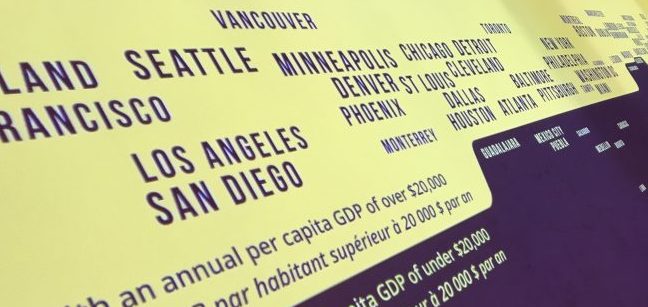City Now, City Future
They used to say that all roads lead to Rome. These days, when it comes to innovation, it seems that all roads certainly lead to cities.
From planning the next Future Cities Mission to Australia for Innovate UK, or scoping out the next city mobility challenges for Ford in the US (see video below), through to reducing the environmental impact of Exeter in the UK, to developing the port of Duqm in Oman, we at 100%Open have been deeply embedded in understanding the challenges and opportunities of city based innovation in the last few years.
So when we heard about the new City Now, City Future exhibition at the Museum of London from one of our clients and partners Grant Thornton, we thought we really should go and see it for a little inspiration. And we weren’t disappointed. There was a great virtual reality demo of Hong Kong standing right on the corner of one of the many sky scrapers in the city. And I really liked the mapping of urban density in cities like London and Rio which really demonstrates the challenge of the concentration of so many people into such a small area.

It seems that in terms of innovation, whilst nations are stagnating, cities are soaring. Over 80% of all global GDP is already produced by cities and the future trend is for this to increase even more.
And some cities matter more than others. Specifically we estimate that when it comes to economic impact there is a tiny footprint on the planet that really matter. If you estimate the size of the central business district area of the top 10 cities globally we estimate the total area is only about 4000 square kilometres.
Top 10 Cities / Total (sq km) / % Central Business Districts / CBD (sq km)
- New York / 8,900 / 15% / 1,335
- Tokyo / 6,900 / 15% / 1,035
- Paris / 2,700 / 10% / 270
- London / 1,600 / 10% / 160
- Singapore / 500 / 40% / 200
- Seoul / 1,050 / 20% / 210
- Amsterdam / 700 / 10% / 70
- Berlin / 1,000 / 20% / 200
- Hong Kong 500 / 40% / 200
- Sydney 1,700 / 20% / 340
Total Central Business District Areas = 4,020 sq km
Source: AT Kearney Global Cities Outlook 2017
This is absolutely tiny and equivalent to the size of the islands of Cape Verde – only about 0.0008% of the surface area of the planet!
So whilst we know that innovation can come from anywhere and everywhere and yet it mostly comes together to be synthesised and scales in a very small geographically concentration in cities.
This concentration of talent, capital, resources and energy comes at a huge social, environmental and human cost which cannot be decoupled from the phenomenal success of cities over the past century. We believe this is the ultimate paradox of our digital age and we need to radically rewire and reimagine our cities and our countries accordingly.